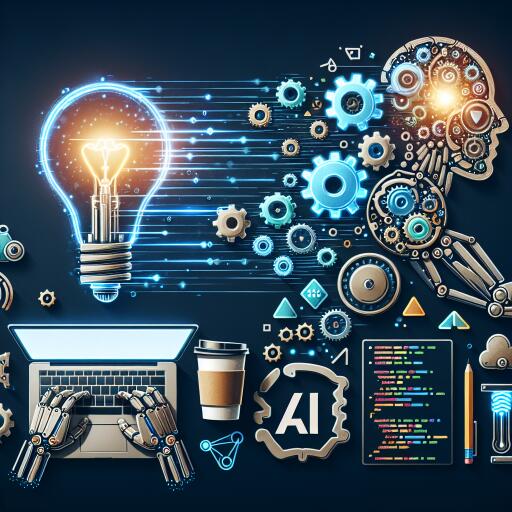Better, Faster, Stronger: How Generative AI Transforms Software Development
In the rapidly evolving tech landscape, the advent of OpenAI’s ChatGPT in November 2022 signified a pivotal shift in the realm of computing. This innovative leap propelled the concept of Generative AI from the confines of academic research and specialized circles into the mainstream spotlight, transforming it into a topic of widespread interest and conversation.
Traditionally, artificial intelligence (AI) has been instrumental in tackling tasks involving prediction and classification. From discerning whether an image depicts a cat or a dog to detecting the authenticity of a credit card transaction, AI has showcased its prowess in various applications. However, Generative AI breaks new ground, distinguished by its capability to produce original content, whether it be in the form of text, images, or audio. This is achieved by leveraging foundation models trained on extensive datasets amassed from the public domain.
The emergence of foundation models such as large language models (LLMs) and diffusion models has laid the groundwork for the development of sophisticated tools like ChatGPT and Midjourney. These tools harness the power of Generative AI to create content that resonates with users, all initiated by a simple textual prompt. Such advancements signal a significant leap forward in how we interact with technology, inviting us to rethink the boundaries of AI’s creative potential.
Focusing on the realm of software development, Generative AI introduces an exciting frontier with the inception of code models. These specialized language models are adept at understanding, generating, interpreting, and, in some cases, executing code. Trained on a compendium of data encompassing a multitude of programming languages, libraries, and frameworks, code models draw from a rich tapestry of resources compiled from public repositories and various other platforms. The potential of code models extends beyond mere novelty, promising to revolutionize the way developers work by offering an unparalleled level of assistance in coding tasks.
As we stand on the brink of this transformative era, it’s paramount to acknowledge the profound impact Generative AI is poised to have on the field of software development. The ability to generate code through AI not only augments productivity and efficiency but also opens avenues for innovation by lowering the barriers of entry for individuals new to programming. Furthermore, by automating routine coding tasks, developers are free to focus on more complex and creative aspects of their projects, thereby elevating the quality and sophistication of software applications.
In conclusion, the rise of Generative AI heralds a new epoch in computing, marked by its capacity to create, innovate, and redefine the limitations of artificial intelligence. As foundation models continue to evolve and expand their capabilities, the future of software development is set to be reshaped in ways we are yet to fully comprehend. The journey of discovery with Generative AI at the helm is just beginning, and its potential to make software development better, faster, and stronger is not just a promise—it’s an inevitability.










